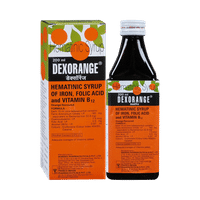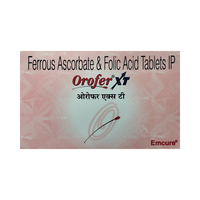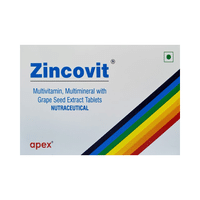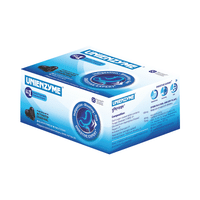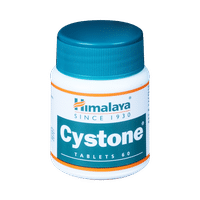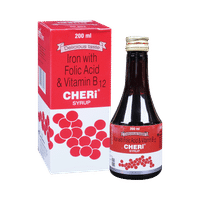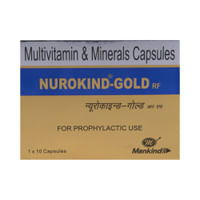Rs.55.30for 1 bottle(s) (5 ml Ear Drop each)
Composition FOR Otinex
Chloramphenicol(5% w/v),Prednisolone(0.5% w/v),Acetic acid(2% w/v),Benzocaine(3% w/v)food interaction for Otinex
alcohol interaction for Otinex
pregnancy interaction for Otinex
lactation interaction for Otinex
food
alcohol
pregnancy
lactation
No interaction found/established
No interaction found/established
Information regarding the use of Otinex Ear Drop during pregnancy is not available. Please consult your doctor.
CONSULT YOUR DOCTOR
Information regarding the use of Otinex Ear Drop during breastfeeding is not available. Please consult your doctor.
CONSULT YOUR DOCTOR
SALT INFORMATION FOR Otinex
Chloramphenicol(5% w/v)
Uses
Chloramphenicol is used in the treatment of bacterial infections. It is used to treat certain types of serious infections caused by bacteria when other antibiotics cannot be used.
How it works
Chloramphenicol is an antibiotic which stops the growth of bacteria. It does so by preventing synthesis of essential proteins required by bacteria to carry out vital functions. This does not directly kill the bacteria, but prevents them from increasing in numbers, and eventually clears up the infection.
Common side effects
Vomiting, Nausea, Diarrhea, Glossitis (tongue inflammation), Hypersensitivity, Bone marrow depression, Aplastic anemia, Increased bleeding time, Optic neuritis, Ototoxicity, Acidotic cardiovascular collapse, Stomatitis (Inflammation of the mouth), Enterocolitis, Gray baby syndrome, Application site reactions (burning, irritation, itching and redness), Blood dyscrasias, Headache, Depression, Delirium (acute confusional state), Jarisch-Herxheimer reaction, Superinfection
Prednisolone(0.5% w/v)
Uses
Prednisolone is used in the treatment of severe allergic reactions, allergic conditions, rheumatic disorder, skin disorders, eye disorders and nephrotic syndrome.
How it works
Prednisolone is a steroid which works by blocking the production of certain chemical messengers in the body that cause inflammation (redness and swelling) and allergies.
Common side effects
Reduction in bone density, Upset stomach, Behavioral changes, Mood changes, Weight gain
Acetic acid(2% w/v)
Uses
Acetic acid is used to prevent infections.
How it works
Acetic acid belongs to the class of medications called antibacterial and antifungal agents. It works by maintaining the pH thereby preventing the growth of bacteria and fungi. It also works by maintaining the pH on the applied area.
Common side effects
Burning sensation, Irritation, Local reaction
Benzocaine(3% w/v)
Uses
Benzocaine is used for local anesthesia.
How it works
Benzocaine works by blocking pain signals from the peripheral nerves to brain which decreases the sensation of pain.
Common side effects
Burning sensation, Stinging sensation, Itching, Erythema (skin redness), Rash, Edema (swelling), Methemoglobinemia (presence of methemoglobin in the blood), Fever, Headache, Breathlessness, Nausea, Vomiting
SUBSTITUTES FOR Otinex
1 Substitutes
1 Substitutes
Sorted By
 Rs. 58pay 1% more per ml of Ear Drop
Rs. 58pay 1% more per ml of Ear Drop
Expert advice FOR Otinex
- Your doctor has prescribed Chloramphenicol to cure your infection and improve your symptoms.
- Do not skip any doses and finish the full course of treatment even if you feel better. Stopping it early may make the infection to come back and harder to treat.
- This can be taken either with or without food.
- Your doctor may get blood tests done to check your blood cells before starting treatment and regularly thereafter.
- Do not use Chloramphenicol if you are pregnant, planning to conceive, or breastfeeding.
- Inform your doctor if you have liver or kidney disease.
Frequently asked questions FOR Otinex
Chloramphenicol
Q. How long does Chloramphenicol takes to work?
Usually, Chloramphenicol starts working soon after taking it. However, it may take some days to kill all the harmful bacteria and make you feel better.
Q. What if I don't get better after using Chloramphenicol?
Inform your doctor if you don't feel better after finishing the full course of treatment. Also, inform him if your symptoms are getting worse while using this medicine.
Q. Can I stop taking Chloramphenicol when my symptoms are relieved?
No, do not stop taking Chloramphenicol and complete the full course of treatment even if you feel better. Your symptoms may improve before the infection is completely cured.
Prednisolone
Q. Is Prednisolone an anti-inflammatory drug?
Prednisolone belongs to the class of corticosteroids which has anti-inflammatory properties. It works by suppressing the inflammation associated with many diseases, for example, arthritis. Therefore, Prednisolone is used for the treatment of a number of inflammatory and auto-immune conditions.
Q. How long can I take Prednisolone for?
It is advisable to take Prednisolone for the duration prescribed by your doctor. Do not stop the treatment suddenly or take for a longer period than recommended by your doctor.
Q. Does Prednisolone contain penicillin?
No, Prednisolone does not contain penicillin. Prednisolone belongs to a group of medicines called steroids.
Acetic acid
Benzocaine
Q. Does Benzocaine heal cold sores/numb mouth/kill sperm/make person sleepy?
Benzocaine can soothe cold sores and numb mouth. It doesn't however kill sperms or make a person sleepy
Q. Is Benzocaine safe?
Benzocaine is safe when used at prescribed dose and duration as advised by your doctor
Q. Is benzocaine stronger than lidocaine?
Benzocaine and lidocaine both belong to the same class of medicines having similar therapeutic action. Individual responses to these medicines might vary













